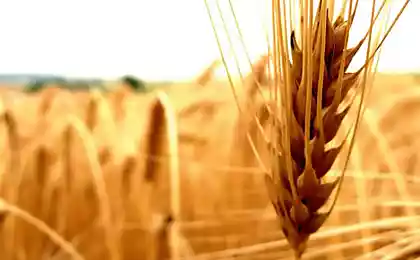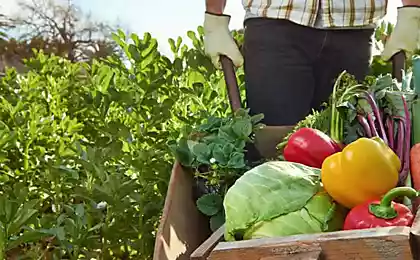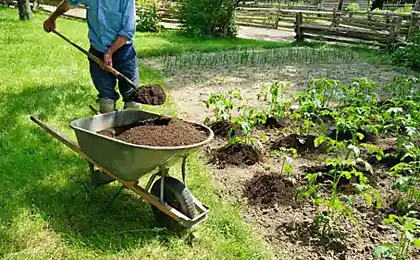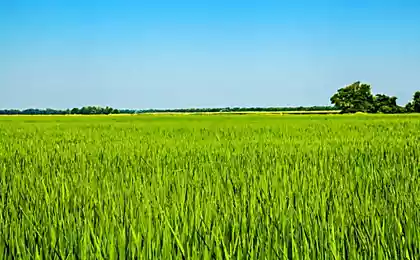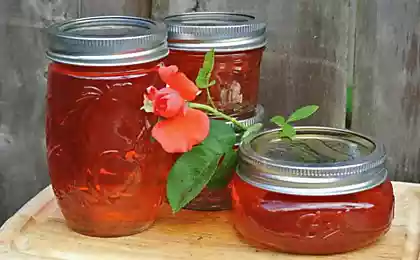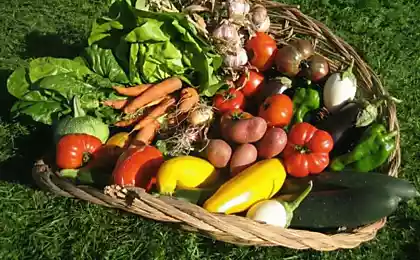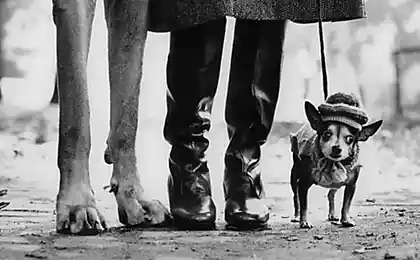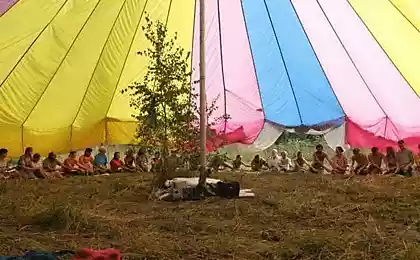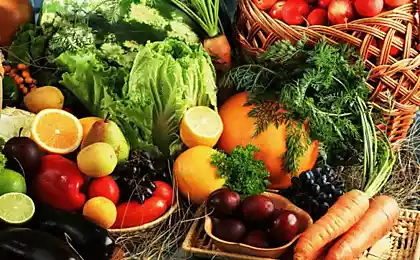181
Micro-agriculture tips from Elliott Homestead hostess
Famous blogger and mother of three children Shay Elliott from the organic farm Elliott Homestead shares her secrets on how to start her farm.
Now many people want to flee from megacities to land and create their own economy. However, most stop halfway for a variety of reasons. For some of them, it's the lack of land. For others, money. For many of them, it is a lack of self-confidence. We also had all these obstacles at different times on our way to creating our homestead. And to act as if everything was going well would be a complete fraud. We also bought a cow without any checks. We fought garden pests. Our chickens were attacked by lice. And the livestock ran away. And predators have cost us. And there were a lot of big, dear mistakes. But it seems that we are still in the infancy stage. These are, as they say, those few tips and points of encouragement for others who want to get into this madness that we call micro-agriculture.
Tip 1: Do What You Can Where You Are
When we lived in Alabama, our house was located in the middle of the surrounding area. It was far from the rural paradise we had hoped for.
What we had was a pretty decent yard and even if it wasn't fenced, it was too shaded for any kind of farming. We really wanted to find a way to somehow use this space for farming. It was impossible to breed chickens because they were too noisy and city regulations did not allow them. Any form of vegetation was absent because there was no soil and no bees near our home and our neighbors.
So we decided to raise rabbits.
No rabbits weren't always at the top of my priority list, but it really allowed me to gain new skills and new knowledge that I could afford at the time. It was a rich experience and I am very grateful that we had it.
Since we could not grow plants in our backyard, I set out to find a plot for farming with my friends. Of course, not everyone welcomed me with open arms, but we were able to grow at least spring vegetables by then.
Then we went to Washington, D.C., and we took a plot where we had been picking shovels and dung for a long time. It was a beautiful site, and you could say that we provided ourselves with food for the whole year? Hardly. But that's not the point. The thing is, I went this short way that helped me gain knowledge. Doing what you can, where you are, is a fantastic way to get started and should be encouraged by any settler. Find a spare plot of land for farming - or an even larger plot for a beehive! Raise some chickens in your neighbor’s annex. Learn to make cheese, even if you don’t have a dairy animal. Read and learn about the directions you wanted to start. Just keep moving forward! Even if these are very small steps.
Tip #2: Get Ready to Learn from Experience
If we had more experience in many of our master adventures, we could save our time, money, and tears. As they say, experience is the best teacher because when you get a lesson, you won’t make that mistake again.
One of the most costly mistakes we have made on the farm so far has been the acquisition of our first cash cow, Kula. I could have read 1001 times in the book that it is necessary to check a cow before buying one, but until the lesson was real and expensive, it meant nothing to me. (If you think I’ll ever buy animals for breeding and don’t check them with a vet, you’re a complete fool.) I learned my lesson.
I read three books on how to raise chickens. And yet, when one of my chickens started dancing funny a few weeks ago, I had no idea what to do with it. I wore her, kept her warm, gave her electrolytes, and hugged her. Four days later, I finally realized it was the lice that were crawling up and down her (which I naturally misdiagnosed as ticks). I knew how to prevent lice, but I had no idea how to treat this infection. Only 5 days later, we found a lice treatment that worked effectively.
I could read all day about ticks and lice and kieselgurs and insecticides without knowing what it looks like, how it manifests itself, or how to treat it. As my husband put it, “Unfortunately, there’s always one animal we learn from.” Experience teaches us. It takes time. But you have to be willing to put yourself in that position and be willing to make mistakes. It's pretty embarrassing to write about all the mistakes I made on the farm - but the hardships and embarrassments teach me by teaching me constant lessons, and it's an incredible blessing.
Tip #3: There are local people who know what the hell they're doing.
It's easier for me to be alone, I'm an introvert, even if something happens and I'm thrilled about it. A few months ago, we went to the fair to buy local pumpkins just a mile down the road from us. We wandered around the site, picking out pumpkins and came to pay for our purchases. I started chatting with the farmer behind the booth and asking him questions about planting schedule, land and seeds. As the conversation progressed, I learned he was raising pigs. And after he found out we had a cash cow, he was thrilled that he had found young people who were interested in farming. We bought a large supply of pumpkin and a few sticks of sausage and pork chops from his freezer. Since then, we have bought tons of produce from his large farm, lots of excellent alfalfa hay for his fields, and even two piglets from one of his sows. I have had at least a dozen meetings with farmers, bakers, beekeepers in our field and they are usually always willing to share their products and their knowledge, and I was eager to absorb them and find further fantastic sources of our food. It takes effort. Face-to-face with a person (Are people still doing this?) It is absolutely invaluable for running your own farm, building a community.
TIP No. 4: Difficulties
You don't have enough money to buy these beehives this year. It's okay! Your plot was completely looted by raccoons and all you were left with were half-eaten zucchini. That's life! You'll have difficulties. Back in the early days of our farm, my husband gently (but firmly) reminded me that farming is an organic process full of organic life – which, as we all know, is far from mechanical. And it's absolutely natural to feel tense, and suffer heart attacks at least every other day. Because the reality is, plants don't grow. Animals are dying. The money will run out. You'll be upset. Learn to be patient and keep pushing forward.
TIP No. 5: Slowly
I know you want bees, chickens, pigs, cows, horses, partridge, and pear tree. But stop for a moment and breathe out. Do not think that progress is slow, that it is insignificant. Work slowly and steadily on each new farm project, and when you make sure your feet are on solid ground, move on to the next task. Analyze your decisions. Plan them. Draw the big picture. And breathe out!
This is far from an exhaustive list, but I hope it will at least give you some optimism. By all means, gain experience, knowledge and know-how. Give the world another homegrown vegetable! And encourage others. We were all complete beginners, and we all had to start from scratch. This means that there is no one right way. So create and enjoy!
Source: rodovid.me
Now many people want to flee from megacities to land and create their own economy. However, most stop halfway for a variety of reasons. For some of them, it's the lack of land. For others, money. For many of them, it is a lack of self-confidence. We also had all these obstacles at different times on our way to creating our homestead. And to act as if everything was going well would be a complete fraud. We also bought a cow without any checks. We fought garden pests. Our chickens were attacked by lice. And the livestock ran away. And predators have cost us. And there were a lot of big, dear mistakes. But it seems that we are still in the infancy stage. These are, as they say, those few tips and points of encouragement for others who want to get into this madness that we call micro-agriculture.
Tip 1: Do What You Can Where You Are
When we lived in Alabama, our house was located in the middle of the surrounding area. It was far from the rural paradise we had hoped for.
What we had was a pretty decent yard and even if it wasn't fenced, it was too shaded for any kind of farming. We really wanted to find a way to somehow use this space for farming. It was impossible to breed chickens because they were too noisy and city regulations did not allow them. Any form of vegetation was absent because there was no soil and no bees near our home and our neighbors.
So we decided to raise rabbits.
No rabbits weren't always at the top of my priority list, but it really allowed me to gain new skills and new knowledge that I could afford at the time. It was a rich experience and I am very grateful that we had it.
Since we could not grow plants in our backyard, I set out to find a plot for farming with my friends. Of course, not everyone welcomed me with open arms, but we were able to grow at least spring vegetables by then.
Then we went to Washington, D.C., and we took a plot where we had been picking shovels and dung for a long time. It was a beautiful site, and you could say that we provided ourselves with food for the whole year? Hardly. But that's not the point. The thing is, I went this short way that helped me gain knowledge. Doing what you can, where you are, is a fantastic way to get started and should be encouraged by any settler. Find a spare plot of land for farming - or an even larger plot for a beehive! Raise some chickens in your neighbor’s annex. Learn to make cheese, even if you don’t have a dairy animal. Read and learn about the directions you wanted to start. Just keep moving forward! Even if these are very small steps.
Tip #2: Get Ready to Learn from Experience
If we had more experience in many of our master adventures, we could save our time, money, and tears. As they say, experience is the best teacher because when you get a lesson, you won’t make that mistake again.
One of the most costly mistakes we have made on the farm so far has been the acquisition of our first cash cow, Kula. I could have read 1001 times in the book that it is necessary to check a cow before buying one, but until the lesson was real and expensive, it meant nothing to me. (If you think I’ll ever buy animals for breeding and don’t check them with a vet, you’re a complete fool.) I learned my lesson.
I read three books on how to raise chickens. And yet, when one of my chickens started dancing funny a few weeks ago, I had no idea what to do with it. I wore her, kept her warm, gave her electrolytes, and hugged her. Four days later, I finally realized it was the lice that were crawling up and down her (which I naturally misdiagnosed as ticks). I knew how to prevent lice, but I had no idea how to treat this infection. Only 5 days later, we found a lice treatment that worked effectively.
I could read all day about ticks and lice and kieselgurs and insecticides without knowing what it looks like, how it manifests itself, or how to treat it. As my husband put it, “Unfortunately, there’s always one animal we learn from.” Experience teaches us. It takes time. But you have to be willing to put yourself in that position and be willing to make mistakes. It's pretty embarrassing to write about all the mistakes I made on the farm - but the hardships and embarrassments teach me by teaching me constant lessons, and it's an incredible blessing.
Tip #3: There are local people who know what the hell they're doing.
It's easier for me to be alone, I'm an introvert, even if something happens and I'm thrilled about it. A few months ago, we went to the fair to buy local pumpkins just a mile down the road from us. We wandered around the site, picking out pumpkins and came to pay for our purchases. I started chatting with the farmer behind the booth and asking him questions about planting schedule, land and seeds. As the conversation progressed, I learned he was raising pigs. And after he found out we had a cash cow, he was thrilled that he had found young people who were interested in farming. We bought a large supply of pumpkin and a few sticks of sausage and pork chops from his freezer. Since then, we have bought tons of produce from his large farm, lots of excellent alfalfa hay for his fields, and even two piglets from one of his sows. I have had at least a dozen meetings with farmers, bakers, beekeepers in our field and they are usually always willing to share their products and their knowledge, and I was eager to absorb them and find further fantastic sources of our food. It takes effort. Face-to-face with a person (Are people still doing this?) It is absolutely invaluable for running your own farm, building a community.
TIP No. 4: Difficulties
You don't have enough money to buy these beehives this year. It's okay! Your plot was completely looted by raccoons and all you were left with were half-eaten zucchini. That's life! You'll have difficulties. Back in the early days of our farm, my husband gently (but firmly) reminded me that farming is an organic process full of organic life – which, as we all know, is far from mechanical. And it's absolutely natural to feel tense, and suffer heart attacks at least every other day. Because the reality is, plants don't grow. Animals are dying. The money will run out. You'll be upset. Learn to be patient and keep pushing forward.
TIP No. 5: Slowly
I know you want bees, chickens, pigs, cows, horses, partridge, and pear tree. But stop for a moment and breathe out. Do not think that progress is slow, that it is insignificant. Work slowly and steadily on each new farm project, and when you make sure your feet are on solid ground, move on to the next task. Analyze your decisions. Plan them. Draw the big picture. And breathe out!
This is far from an exhaustive list, but I hope it will at least give you some optimism. By all means, gain experience, knowledge and know-how. Give the world another homegrown vegetable! And encourage others. We were all complete beginners, and we all had to start from scratch. This means that there is no one right way. So create and enjoy!
Source: rodovid.me
In the Egyptian Valley of the kings opened the burial of children of the pharaohs
Incredible facts about sleep
